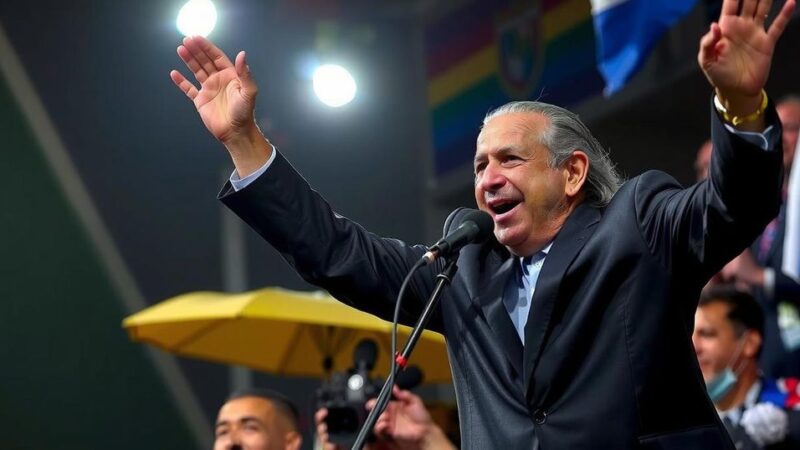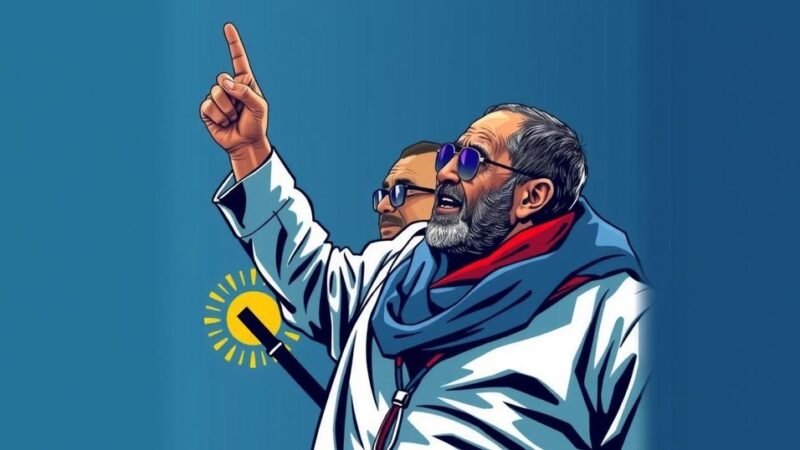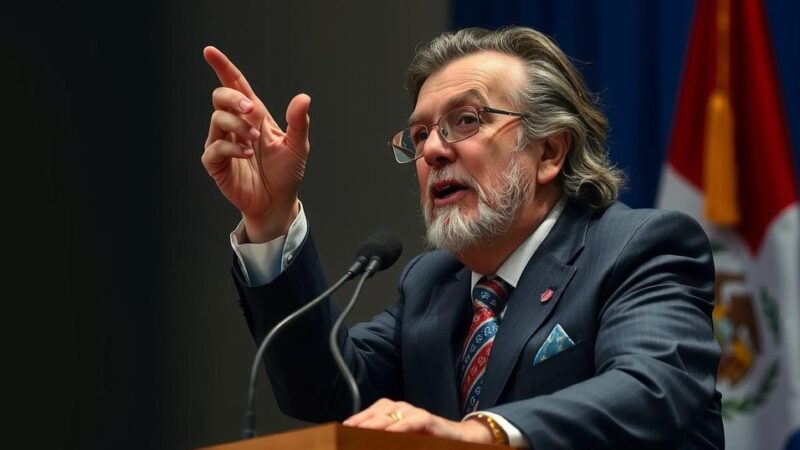Yamandu Orsi has been elected as Uruguay’s president following a competitive run-off against Alvaro Delgado of the ruling centre-right coalition. His victory, with 49.8% of the vote, signifies a rejection of the incumbent party and a call for unity in a politically divided country. Orsi inherits a legacy of progressive reforms and aims to address pressing social challenges with a moderate approach.
Yamandu Orsi, the candidate representing Uruguay’s left-wing coalition, has emerged victorious in the recent presidential run-off, defeating incumbent Alvaro Delgado from the centre-right governing coalition. Mr. Orsi’s triumph reflects a significant political shift within Uruguay, as he aims to unify a nation experiencing political fatigue and economic challenges. Amid a backdrop of muted concession by Mr. Delgado, Mr. Orsi addressed his supporters, reaffirming his commitment to fostering national dialogue and constructing an inclusive society.
The election results showed Mr. Orsi garnering 49.8% of the vote compared to Mr. Delgado’s 45.9%, amidst historic voter turnout of near 90%. The election was significant not only due to its outcome but also due to the broader trend of voters globally expressing dissatisfaction with incumbents. However, unlike other nations, Mr. Orsi’s moderate stance signifies continuity in governance rather than radical policy shifts.
Mr. Orsi inherits a legacy from previous leftist leaders, calling for an approach that emphasizes social welfare while maintaining economic stability. His agenda underscores ambitions similar to those of former President Jose “Pepe” Mujica, who is celebrated for his progressive reforms and enhancing Uruguay’s global standing for social justice. As analysts gauge the implications of this election, Mr. Orsi’s commitment to bridging socio-political divides is traced against the backdrop of a nation deeply rooted in democratic values.
In conclusion, the election of Yamandu Orsi signals a pivotal moment in Uruguay’s political landscape, indicating both a rejection of conservatism and an aspiration for a united approach to addressing pressing social issues. Mr. Orsi’s administration will be watched closely as he navigates the complexities of governance while addressing the sentiments of a diverse populace.
Yamandu Orsi’s election as president follows a period marked by rising discontent towards incumbent administrations globally. In Uruguay, a nation shaped by its progressive history, this election showcases a broader anti-incumbent sentiment emerging worldwide. Orsi’s campaign resonates with voters who are disillusioned by the economic malaise post-pandemic, evoking memories of successful governance under the Broad Front coalition. His victory comes at a time when nations around the globe, including the US, South Korea, and Japan, are witnessing shifts in political power as citizens push for change amidst extending socio-economic challenges.
Yamandu Orsi’s election as Uruguay’s president signifies a formidable shift in political dynamics, reflecting national desires for inclusive governance and change. Mr. Orsi’s promises of national dialogue and social reforms could rejuvenate Uruguay’s socio-economic landscape while restoring faith in its political institutions. As he prepares to assume office, scrutiny will turn to how effectively he can unite a divided electorate and address the pressing issues facing the nation beyond election rhetoric.
Original Source: www.expressandstar.com






